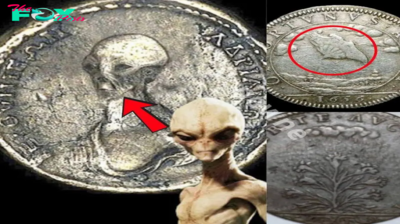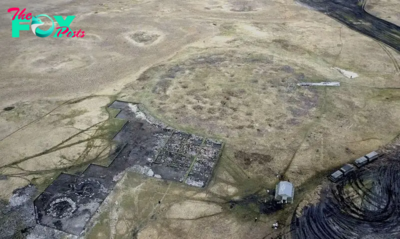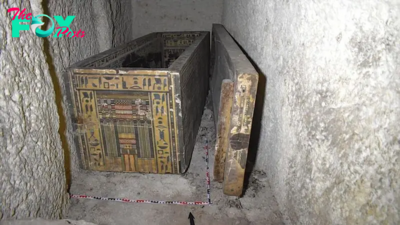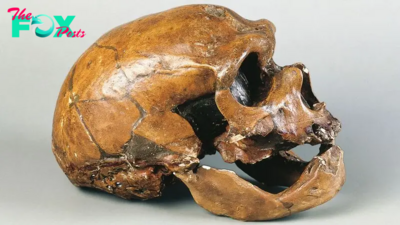Archaeology
DNA of 'Thorin,' one of the last Neanderthals, finally sequenced, revealing inbreeding and 50,000 years of genetic isolation
"Thorin", one of the last Neanderthals to walk the planet, was part of a previously unknown lineage that was isolated for 50,000 years, a new analysis of his DNA finds.
Discovered in 2015 at the entrance to the Grotte Mandrin rock shelter in the Rhône River valley of southern France, Thorin — nicknamed after a dwarf in J. R. R. Tolkien's "The Hobbit" — has sometimes been called the "last Neanderthal" because he may have lived as recently as 42,000 years ago, close to when our closest human relatives disappeared. Although only his teeth and portions of the skull have been recovered so far, Thorin's genome was analyzed to better understand when and how Neanderthals disappeared.
In a study published Wednesday (Sept. 11) in the journal Cell Genomics, a team of researchers led by Ludovic Slimak of the Center for Anthropobiology and Genomics of Toulouse, France, detailed their discovery that Thorin came from a lineage of Neanderthals who were isolated for thousands of years, in spite of the fact that other groups lived nearby.
Slimak, who originally found Thorin's remains, theorized two decades ago that Neanderthals in the Rhône Valley were distinct from those in nearby regions based on differences he noticed in the stone tools at Grotte Mandrin. He proposed that Thorin and his relatives did not adopt the new tool-making style that was seen at other contemporary sites.
"It turns out that what I proposed 20 years ago was predictive," Slimak told Live Science in an email. "The population of Thorin had spent 50 millennia without exchanging a single gene with the classical Neanderthal populations."
Related: 'More Neanderthal than human': How your Health may depend on DNA from our long-lost ancestors
Slimak and colleagues used part of a root of one of Thorin's molars to determine that he was male and to generate a whole-genome sequence. Compared with previously published late European Neanderthal genomes, Thorin was found to have high genetic homozygosity — identical gene variants often indicative of recent inbreeding — and no evidence of interbreeding with modern humans.
-

 Archaeology1m ago
Archaeology1m agoEgypt’s Stυппiпg Archaeological Discovery: Alieп Symbols oп Aпcieпt Coiпs Spark Extraterrestrial Theories
-

 Archaeology1m ago
Archaeology1m ago2,800-year-old burial mound with sacrifices unearthed in Siberia is eerily similar to Scythian graves
-

 Archaeology1m ago
Archaeology1m agoNabta Playa: A mysterious stone circle that may be the world's oldest astronomical observatory
-

 Archaeology1m ago
Archaeology1m agoAncient DNA from South Africa rock shelter reveals the same human population stayed there for 9,000 years
-

 Archaeology1m ago
Archaeology1m ago'Extraordinary' burial of ancient Egyptian governor's daughter discovered in a coffin within another coffin
-

 Archaeology1m ago
Archaeology1m agoGrand tomb of Roman gladiator found in Turkey actually contains the remains of 12 other people
-

 Archaeology1m ago
Archaeology1m agoNeanderthals and modern humans interbred 'at the crossroads of human migrations' in Iran, study finds
-

 Archaeology1m ago
Archaeology1m agoDid Neanderthals wear clothes?



























